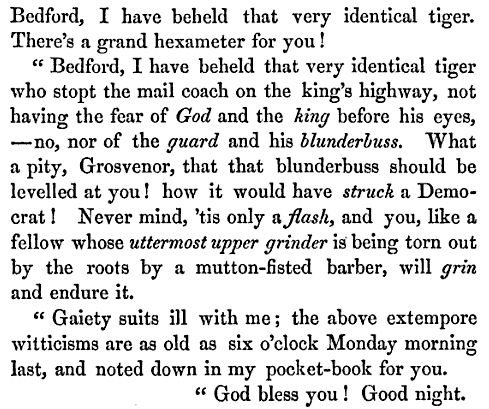Murray Smith asks about a phrase in Joe Drape, "Looking for Zenyatta's Mr. Right", NYT 1/13/2011:
How Zenyatta will fare in her new career as a broodmare at Lane's End Farm is anyone's guess. She was a once-in-a-generation princess on the racetrack, winning 19 of 20 starts […]
Breeding, however, is more magic than math. […]
The Mosses and the people they have entrusted Zenyatta to know that the odds of coming up with another horse like her are long.
Murray observes that "The context makes clear that it is considered somewhat unlikely that Zenyatta will produce offspring of her calibre (the odds are against it), but the quote seems to say that it is likely (the odds of it are long)". Any idea what's happening? Any way to tell whether 'odds of' has always been ambiguous between "'for' and 'against'?"
Read the rest of this entry »


